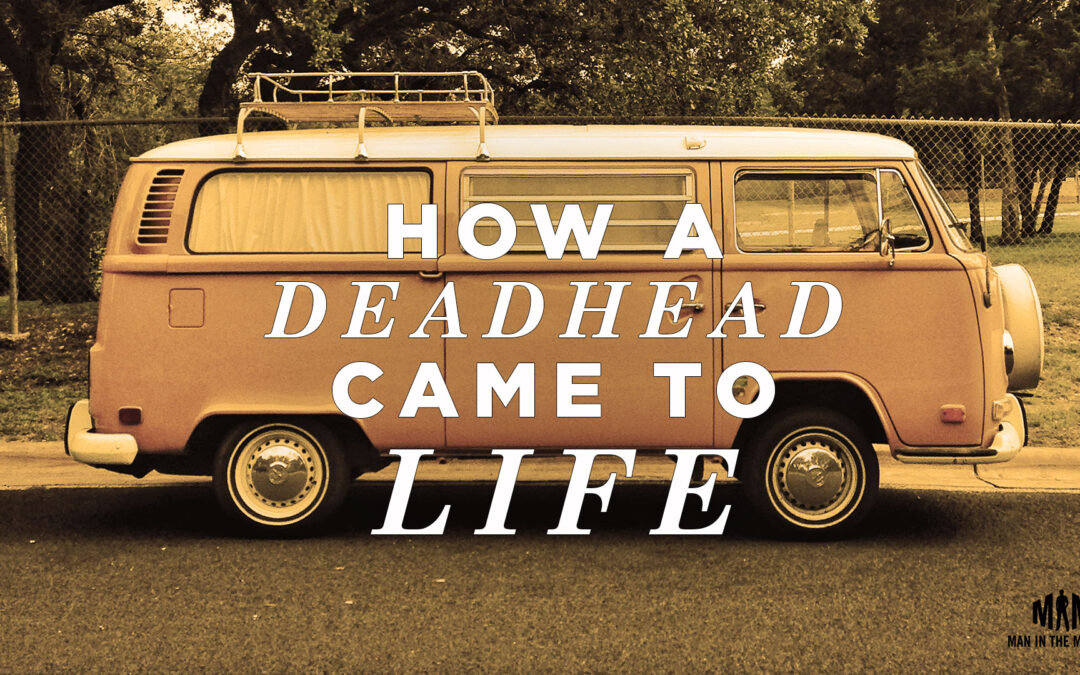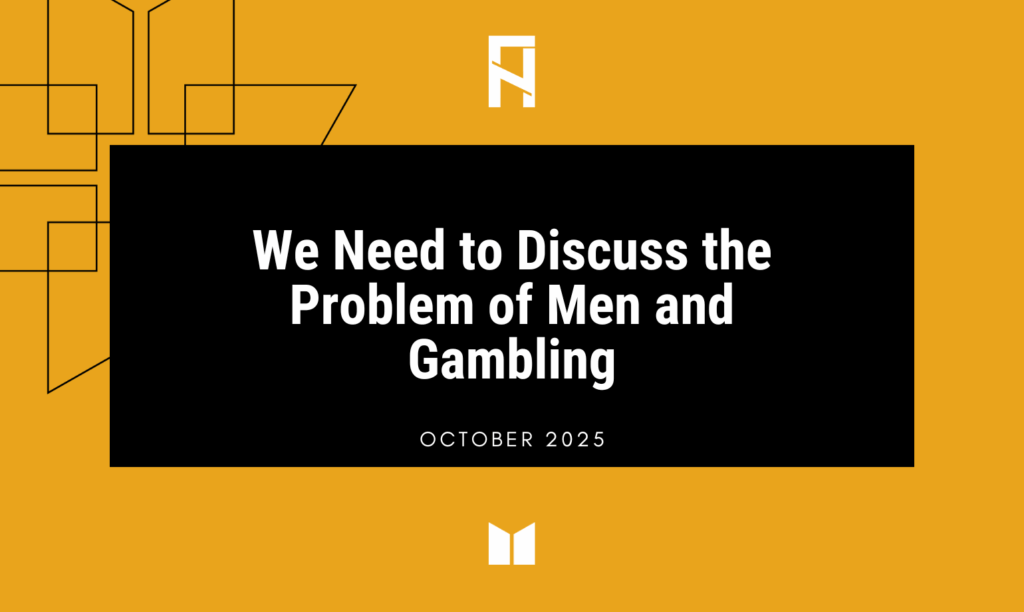It took one night for Jerry to be evangelized, but it took more than two chaotic decades before he was discipled. In the end, it was as simple as two men talking while fixing vehicles—and it transformed his entire life.

By Jamie Turco
Director of Communications
Based on an interview with Jerry Laughridge in late 2015
Music played loudly, but Jerry didn’t hear it. The pastor’s words reverberated in his head—he felt pulled forward but his legs wouldn’t move. This Jesus—this was it—what he desperately needed. He looked around; was everyone staring at him?
All the other kids seemed far away. A few girls kneeled together by the wall, whispering with their eyes closed. A boy he recognized from a game earlier in the day was singing a few chairs away. Everywhere hands were clasped together or in the air. Surely they must know—the pastor was talking about him.
Slowly, his eyes wet, he walked toward the front. At a camp in the green mountains of North Carolina, at a simple altar, 12-year-old Jerry gave his life to Christ.
He used cocaine for the first time later that summer, as the other kids excitedly prepared to start 7th grade.
“I didn’t know what I was supposed to know, so that was the end of that,” Jerry says, matter-of-factly. He sits across from me, his arms inked down to the wrists. Rough callouses on his hands are faintly coated by a permanent residue of dirt, grease and oil from 12-hour days in the auto shop. His eyes are warm, and lines deepen at the corners when he laughs. They’ve seen more than most.
He’s an unlikely evangelist.
At the age of two, Jerry’s parents separated and he moved to North Carolina with his mom to be closer to his grandparents. He has faded memories of his dad from when he was a boy, like Polaroids left out in the sun.
“Who is that?” he asked curiously, watching his dad pull up on a motorcycle one Christmas, long hair flowing out from his helmet. The visits got further apart until they all but disappeared.
[click_to_tweet tweet=”He has faded memories of his dad from when he was a boy, like Polaroids left out in the sun.” quote=”He has faded memories of his dad from when he was a boy, like Polaroids left out in the sun.”]
When he was 10, his mom met Susan, and their relationship developed into a romantic one. One day after seeing the women together, he asked his mom about it and was told that he’d imagined it—nothing was going on. He’d made it up, she told him. It was a confusing time. “I learned something about the value of truth that day,” he recalls.
Before long, Susan moved in and began to step into a parenting role. Although he believed she loved him, it was strained. Moreover, the deceit that had marked the origin of their relationship had produced a slow-growing anger inside of him that was spilling out into frequent, repetitive arguments with his mom.
He left home at 16, having long been abusing drugs and alcohol. “I was off the chain,” he says, shaking his head. “I wasn’t doing anything right by my mom. My mom and I lived alone again at this point and I was really bad. She couldn’t stand me being there. So why be there?”
After bouncing from couch to couch at friends’ places for a while, he found a job and moved into an apartment, but soon found that he couldn’t balance work, school, and partying. Something had to go.
So he chose school. It didn’t help. He was slamming his way through, waking up and beer-bonging 12 drinks before work.
From time to time, his mom would call, asking him to come home. But the conversation would just end in the same old arguments; so much had happened to work through—from his view, the lies and false accusations, and from hers, the substance abuse and the chaos that comes with it. It came to a head over money and he took off out of town for good.
Armed with one bag and an old Volkswagen van, Jerry drove to Boone, where he hooked up with a group of people and headed for Kansas City. It was the late 80s and a Grateful Dead show was the place to find everything he was looking for—free drugs, free people, and free time.
Like a gun going off at the track, that concert sprung what was essentially a 15-year road trip. He went “on tour,” as thousands of others did, traveling from show to show, picking up new people along the way.
Having moved a lot as a kid, he’d always felt different, struggling to break into the time-honored friendships; he was the oddball looking through the window but never quite inside.
Everything about the deadhead culture, on the other hand, was inviting. He was welcome, accepted, and a part of something bigger—like a river current that sweeps you up and moves you along—and he embraced it.
“People were always helping each other, and gas and food were the main issues, because drugs were widely available,” he tells me. “You could turn around and everything you’d want is right there and rarely cost anything. But the fuel to get to the next place and the food, you know, that was always the hustle. But you don’t think; you just do. Somebody needs a ride and they got a bunch of acid or a bag of weed and they see you have a van but you don’t have any drugs so ‘let’s go!’—”
My young daughter has just woken up from her nap and cuts Jerry off mid-sentence. “Hiiiiiiii,” she says to him, smiling shyly. His eyes light up and he raises his voice a few octaves—“Helloooo!”—and squeezes her hand. “Hiiiii,” she says again, baiting him, before waddling off, leaving a wake of giggles behind. He laughs and turns back toward me, his face having taken on a boyish quality. Joy. “What was I saying?”
It’s hard to place him at the scene of his stories—this man who an hour earlier squeezed fresh lemons over salmon and baked it for his wife and friends to enjoy together. But he’s there, he’s right there in them, running from the police in bare feet, dreadlocks bouncing behind him. (“That was part of our fun, to be running in and around the PO-lice, saying, ‘They’re coming!’ I loved it. They stuck out. You could smell them; we’d say they smelled like the paper they write the tickets on.”)
Running from anger and small towns and a father who’s a stranger who pulls up for an hour on Christmas. Running just for the sake of it because there’s nothing much to run to.
The tour ended for Jerry when he was arrested for leaving the scene of an accident with serious injury. He was driving someone home to Florida from a Grateful Dead show and the van was stuffed with dogs and people. They were enjoying the sunshine, arms out the window, music blasting. One of them had robbed somebody in order to get the gas money for the trip and with the extra cash, they’d decided to share a few bottles of liquor along the way. He was passing the bottle when he lost control and ran off the road, rolling the van and trapping a passenger who’d had her hand out the window.
After he freed her hand, he made a run for it but didn’t get far. For the accident, Jerry spent several months in a Florida jail, only to be picked up by a bail bondsman from North Carolina, who took him back to serve time there for a previous charge.
When he got out, he was greeted with nothing. “I went from doing the natural stuff like weed when I was following the Dead to manmade stuff,” he says. “I started smoking crack and shooting drugs at that point. Because it’s just—who cares?—it didn’t really matter.”
[click_to_tweet tweet=”“I started smoking crack and shooting drugs at that point. Because it’s just—who cares?—it didn’t really matter.”” quote=”“I started smoking crack and shooting drugs at that point. Because it’s just—who cares?—it didn’t really matter.””]
But something had shifted inside. Finally, he wanted it to matter. He hit a breaking point and entered treatment at The Salvation Army. He remembers thinking, Wow. This is a good program. And it was. He picked up some good tools, completed the process, got out, hit a seedy strip club on the way home, and soon started shooting again.
He saw other guys from time to time who had made it. They’d gotten out of it. He realized the difference: he’d been willing to change some of his life but not all of it.
So he went back to The Salvation Army, and this time something was different. As he started working on the vehicles there, he developed a reputation for a strong work ethic and high standards. Out of it stemmed a friendship with the man running the center, Major Smith.
“Major Smith started to mentor me. It was raw,” he says, grinning. “He was a raw man and could speak to me on my level without disrespecting the Lord. He gave me room to make some mistakes and actually be me. And I would go to him with different situations and he would reference the Bible and the grace of Jesus and that’s where this all started from.”
[click_to_tweet tweet=”Major Smith started to mentor me. It was raw. He was a raw man and could speak to me on my level without disrespecting the Lord.” quote=”Major Smith started to mentor me. It was raw. He was a raw man and could speak to me on my level without disrespecting the Lord.”]
He thinks back to that moment at camp sometimes, the powerful glimpse he got into the gospel. “The fact is, from the day I went in front of all those people and gave my life to Christ, He never took His hand off me. I never would’ve recognized it then, but you know, it’s like you’re standing at an edge of a mountain and something’s holding you back. Well, I was hanging completely over. And there are plenty of men—even Paul was that man—hanging over the edge.”
At Man in the Mirror, we often say that evangelism without discipleship is cruel. The cruel truth is this: It took one night for Jerry to be evangelized, but it took more than two decades for him to be discipled. In the end, it was as simple as two men talking while fixing vehicles—and it transformed his entire life.
Now he’s back on tour, as warm and inviting as the Deadhead culture he was drawn to. This time around, however, his “tour” is living one day at a time for Christ, and he’s still bringing loads of people along with him. From the guys in recovery ministry, to the elderly neighbor he used to grocery shop for, to the stranger ringing him up at the gas station, he has a hunger to share the gospel with whomever will listen.
[click_to_tweet tweet=”Now he’s back on tour, as warm and inviting as the Deadhead culture he was drawn to.” quote=”Now he’s back on tour, as warm and inviting as the Deadhead culture he was drawn to.”]
“I just know that there’s a fear in me that someone’s not going to hear it,” he says, clasping his hands, the tattoos on his knuckles stretching. “And I think, if it comes from somebody who doesn’t look like the person that’s supposed to be talking about that, then it might simplify it enough for someone to go, ohhhh.” He pauses. “Because every time I’m reading Scripture, I’m trying to figure out how to talk about it to somebody.”
I ask him if he worries about ruffling feathers or pushing guys away who don’t want to hear it, and he shrugs, shaking his head. “I think God’s Spirit is pushing men to be changed by Him anyway so it has to come out of somewhere.”
His response stops me for a second—the profound simplicity of it. I look at Jerry and think about the grandmother who once took him to Sunday school, the new friend who invited him to Christian camp, Major Smith at the Salvation Army. It has to come out of somewhere.
Finally, I ask about his relationship with his mom. He smiles. “God has redeemed all of the years that the locusts have eaten.”
Jerry glances over at his wife. “I can see where He had a plan for me that I never had for myself. I think I wanted so much less. It just makes the Scriptures real.”
THE BIG IDEA: Through the Spirit, God is already moving in the hearts of men; will we step up and disciple them?
♦♦♦
[vc_widget_sidebar sidebar_id=”businesslounge-free-2″]







That’s the redeeming power and love of Jesus. Thankful for other Brothers who can find strength in numbers.
Gracias a Dios por todo lo que hace a través de los hombre escogidos para anunciar su evangelio y discipular.
Me gustaría conocer si sus materiales está disponible en Español.
Hola Jacobo, Puedes encontrar algunos de nuestros libros en español en Amazon aquí
También tenemos este: https://resourcesformen.org/product/plan-de-accion-para-el-ministerio-de-caballeros/
Bendiciones para usted! – Bryan
What a powerful story of redemption. No surprise that in today’s culture people can be led astray so easily. Many of us are fortunate to have been discipled early in our walks yet so many others just wander through life never truly experiencing all that God has for them in the here and now and beyond. May we all be more attentive to men that God has brought into our paths treating each encounter as a divine appointment. To God be the Glory!
Jerry had a good testimony although it sounded like so many others. Every testimony is unique. God moves where he will and he moved upon Jerry in many ways. Yes it took some time to disciple him but nothing’s promised to be instant all the way through things have to change in the right time whether for the worse or for the best. Thank God for Jerry it was for the best.